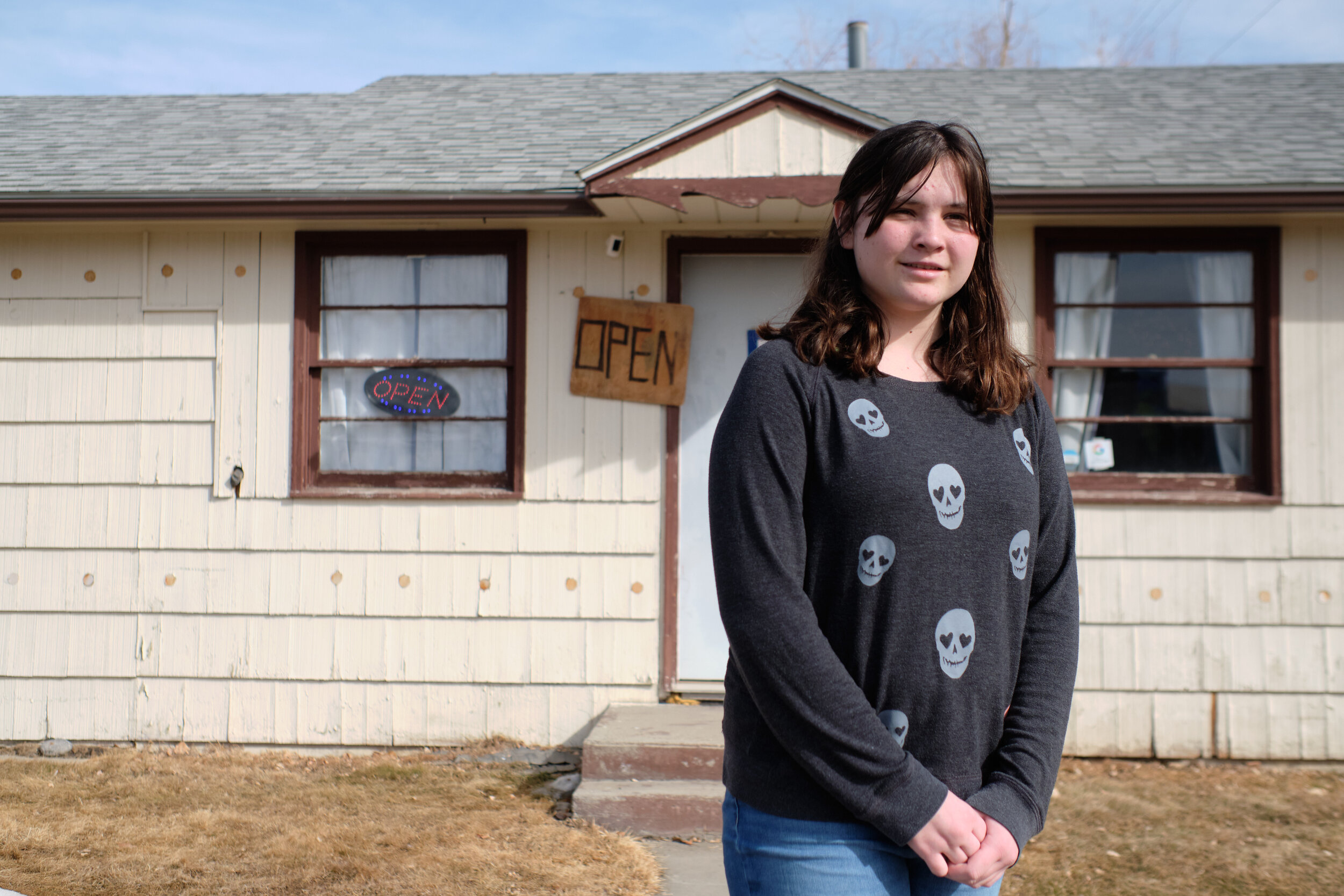The SHACK: A Safe Place
In our digital age, what someone types into Google’s search bar can show what they most need or want. The youth who find The SHACK’s website are looking primarily for one thing: A Safe Place.
“Safe place” and “safe space” consistently rank as the most searched terms that land someone on The SHACK’s website, according to website analytics. When students seeking safety walk in the door of the small, tan building on North 6th Street in Greybull, Wyoming, they often immediately discover they found what they wanted.
“It was like heaven,” 10th grader Madi Nelson says about her first time at The SHACK in the summer of 2020.
That’s high praise for a 900-square-foot building outfitted with mismatched couches, tables, bean bag chairs, and a variety of art ranging from painted scenes of Jerusalem to a wall of brightly colored handprints scrawled with students’ names and graduation years.
For youth like Madi, though, The SHACK feels “like heaven” because it’s safe.
“All the kids here are really nice. I don’t have to worry about bullying or anything like that,” Madi says. “I just like hanging out and feeling like I belong somewhere. I found my people.”
Madi feels a sense of safety and belonging at The SHACK.
Several students express similar sentiments. At The SHACK, they feel welcomed, accepted, comfortable, out of danger, like nothing bad can happen.
“Being safe means that you can be yourself without worrying about other people, that you don’t have to worry about getting criticized for who you are,” 10th grader Zach Rice says.
*****
The impact of that sense of place and safety for Greybull’s youth is hard to measure. Does it lead to less drinking, less drug use, and less trouble in town? It’s possible.
“When I first came here, we dealt with that a lot. We dealt with a lot of vandalism, underage drinking, underage smoking, just juvenile issues,” Greybull Police Chief Bill Brenner says. “I can guarantee that has declined.”
While Brenner can’t empirically point to The SHACK as the reason for such decline, he believes it has certainly helped.
“The most valuable thing that we get out of The SHACK in law enforcement is it gives the kids a positive place to go and a positive thing to do rather than get in trouble,” Brenner says.
He sees The SHACK filling a similar role as the “deterrence patrols” done by his police officers. Its mere presence in the community deters risky behaviors and promotes safety.
Greybull Police Chief Bill Brenner believes The SHACK has contributed to lower rates of underage drinking and vandalism in the town, for which he is grateful.
Because students are at The SHACK, they aren’t “on the street.” If they aren’t on the street, they aren’t doing the things that may seem small now but can lead to lifelong struggles with addiction, codependency, lack of confidence, and fear of rejection.
That is an impact that will be felt by the community. If students can learn to make healthy choices, have healthy relationships, and grasp their own value in the eyes of others and of God, they will help Greybull remain a safe town for all.
*****
Inside the walls of The SHACK, “safe” means different things.
For Madi, who struggles with feeling like an outcast at school in Basin, safe means belonging.
For Aysa McMillan, an 8th grader at Greybull Middle School, safe means having someone to talk to when her heart feels broken and the anxiety and depression seep in.
For others, safe can mean being smiled at, feeling cared for, not getting beat up, or having a place to do homework when mom is getting drunk at the bar after school.
“What I’ve found at The SHACK was we became the safest place for those kids,” former SHACK board member and supervisor Barbara Anne Greene says.
Students would tell her thank you for smiling at them. They would walk in the door, throw down their books, open their arms, and ask for a hug.
“We didn’t bully them like they may have been bullied in school because they were from across the wrong side of the tracks, or they weren’t the richest or cutest,” Greene says.
“And we kept them safe from their families, and that is heartbreaking to me, that kids would come in and ask for a hug, and it would be the first hug they had that day.”


